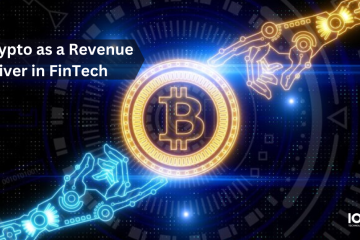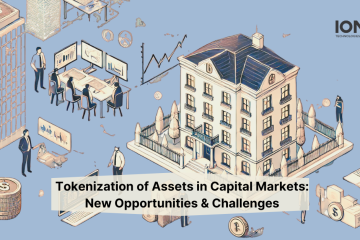For better or worse, we can’t seem to get enough of social media. With over 2 billion users on Facebook, 1 billion on Instagram, and 321 million on Twitter social media isn’t going anywhere.
It’s also clearly a lucrative business. In 2019, advertising revenue is projected to reach $31 billion. All that being said, social media has its fair share of problems.
For one, high-profile data breaches such as the leaking of 15 million users’ account information from Facebook in September 2018 has shattered user confidence. Consumers are also becoming increasingly worried about how their “private” data is being shared for revenue.
That’s not to say there is nothing good about traditional social media advertising. Facebook ads have been an indispensable tool for many businesses to connect with their customers. However, there are concerns about how companies like Facebook prioritize these ads above their users.
Our need to share our lives seems never-ending, no matter the risks. This begs the question, is there a better way?
Just like it has done for the financial industry, blockchain seems poised to disrupt the social media scene. The technology was built to solve problems related to privacy and decentralization of authority, some of the primary issues staring at the face of social media.
But what is it? And, how does it work?
How does it work?
Blockchain cryptocurrencies work over a distributed ledger that’s maintained by a whole network of peer-to-peer computers. These computers, or “nodes”, process transactions made over the network. Every node checks the work of every other to come to a general consensus about the validity of each transaction.
No central authority. No single point of failure.
Blockchain-based social media takes this a step further by applying the same principles to user information and content. User-generated content and their personal information aren’t stored on central servers and no central entity owns it.
With the underlying technology already available, most platforms also use a form of cryptocurrency. This money/tokens can be used to incentivize and reward users and create a kind of “attention economy.”
Top blockchain social media platforms
Maybe the best way to wrap your head around this concept is to look at a few popular examples:
Minds.com is a social media network alternative to the likes of Facebook and Instagram. It already has over a million users and is one of the most active and established social media blockchain projects.
The main principle behind Minds is that of internet freedom and the right not to be censored. The idea was so popular that its founders managed to raise over $1 million in an equity crowd-funded sale. The platform uses Ethereum-based tokens that can also be spent to get premium features.
Steemit runs on the Steem blockchain and uses STEEM cryptocurrency. Users get STEEM for creating valuable content through upvotes, comments, shares, etc.
STEEM is constantly being “minted” and added to the overall pool which then gets distributed to content creators. All the power to promote and reward content is in the hands of users.
Steemit already passed the 1 million user mark in March of last year. It can be thought of as the blockchain alternative to Medium.
A number of other blockchain social media platforms like DTube, Busy.org, and Utopian.io also run on this infrastructure. Their official statistics show just what a dynamic environment it is.
Steepshot is the blockchain social media industry’s answer to visual platforms like Instagram. The concept, and even the physical app, is very reminiscent of Instagram. It also works the same way as Steemit where you get rewarded for generating interactions on your posts.
It’s part of the Steem suite, but functions with its own currency, SBD.
Choon.co
Choon.co is a like-for-like replacement for music streaming platform Spotify. Its main purpose is to ensure artists get compensated fairly and transparently for their intellectual property. Users can also get rewarded for creating and sharing their playlists with others.
Why use blockchain alternatives to conventional social media?
- Incentivization: Whether sharing posts or uploading music, video, or images, you can get paid for doing what you’d usually do on social media.
- Decentralization of information: With no single entity controlling all user information and content, there is less chance of selling out to third parties, leaks, and other privacy issues.
- Decentralization of content: Users keep total ownership of their content. It can’t be annexed by the owner of the platform and won’t get lost if the platform gets taken down. This also helps content censorship and even helps regulate fake news.
- Organic content: Most of these platforms encourage organic sharing of content and forming of interest groups.
As the main source of income, big business spending on ads had disproportionate sway, often to the detriment of content creators. The trend in blockchain social media is to shift focus and hand over control back to the latter.
This will allow content creators to be more fairly compensated and for content to spread more organically. If you want to know why this is important, just look at the history of fiascos concerning YouTube’s demonetization and ad policies.
Another way in which blockchain can shake up the social media scene is how digital marketers interact with consumers. Instead of paying the platform to dish out ads to users, users can be given BATs (Basic Attention Tokens) for watching ads or giving feedback.
Is Blockchain-based Social Media the Future?
All-in-all, this means a general refocusing on what social media should be all about in the first place: its users.
The demonetization, advertising, information-sharing, and censoring policies of big social media companies, as well as their flawed security measures, have irrevocably shaken the confidence of consumers. It seems unlikely that they are ever to fully regain it, barring exceptional efforts to change we have seen thus far.
That presents blockchain-based social media companies with a tremendous opportunity. Whether it will be adopted widely enough to truly challenge the already robust establishment remains to be seen!


